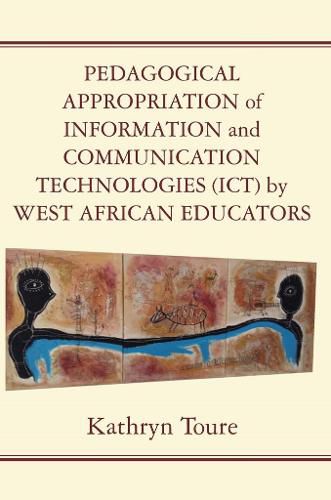Readings Newsletter
Become a Readings Member to make your shopping experience even easier.
Sign in or sign up for free!
You’re not far away from qualifying for FREE standard shipping within Australia
You’ve qualified for FREE standard shipping within Australia
The cart is loading…






This title is printed to order. This book may have been self-published. If so, we cannot guarantee the quality of the content. In the main most books will have gone through the editing process however some may not. We therefore suggest that you be aware of this before ordering this book. If in doubt check either the author or publisher’s details as we are unable to accept any returns unless they are faulty. Please contact us if you have any questions.
West African teachers and professors who are appropriating information and communication technologies (ICT) are making it part and parcel of education and everyday life. In Mali and beyond, they adapt ICT to their milieus and work as cultural agents, mediating between technology and society. They yearn to use ICT to make education more relevant to life, facilitate and enhance African participation in global debates and scholarly production, and evolve how Africa and Africans are projected and perceived. In sum, educators are harnessing ICT for its transformative possibilities. The changes apparent in student-teacher relations (more interactive) and classrooms (more dialogical) suggest that ICT can be a catalyst for pedagogical change, including in document-poor contexts and ones weighed down by legacies of colonialism. Learning from the perspectives and experiences of educators pioneering the use of ICT in education in Africa can inform educational theory, practice and policy and deepen understandings of the concept of appropriation as a process of cultural change.
$9.00 standard shipping within Australia
FREE standard shipping within Australia for orders over $100.00
Express & International shipping calculated at checkout
This title is printed to order. This book may have been self-published. If so, we cannot guarantee the quality of the content. In the main most books will have gone through the editing process however some may not. We therefore suggest that you be aware of this before ordering this book. If in doubt check either the author or publisher’s details as we are unable to accept any returns unless they are faulty. Please contact us if you have any questions.
West African teachers and professors who are appropriating information and communication technologies (ICT) are making it part and parcel of education and everyday life. In Mali and beyond, they adapt ICT to their milieus and work as cultural agents, mediating between technology and society. They yearn to use ICT to make education more relevant to life, facilitate and enhance African participation in global debates and scholarly production, and evolve how Africa and Africans are projected and perceived. In sum, educators are harnessing ICT for its transformative possibilities. The changes apparent in student-teacher relations (more interactive) and classrooms (more dialogical) suggest that ICT can be a catalyst for pedagogical change, including in document-poor contexts and ones weighed down by legacies of colonialism. Learning from the perspectives and experiences of educators pioneering the use of ICT in education in Africa can inform educational theory, practice and policy and deepen understandings of the concept of appropriation as a process of cultural change.